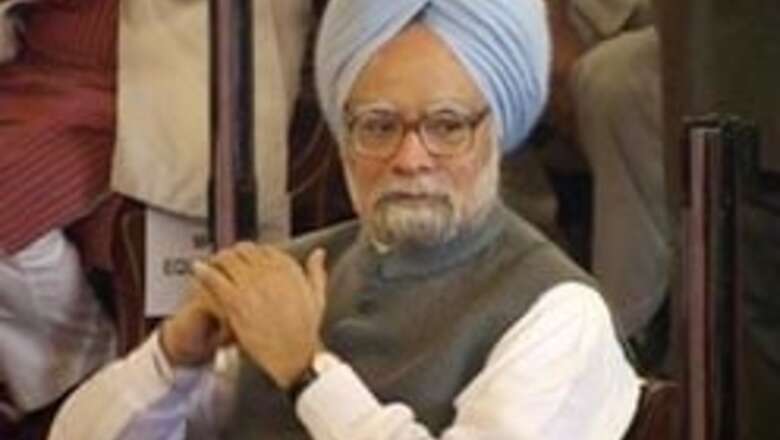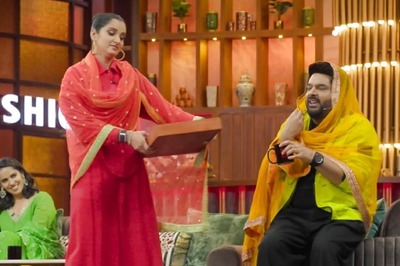
views
New Delhi: Prime Minister Manmohan Singh Monday left for Japan's northern town of Toyako in Hokkaido island to attend the annual conclave of leaders of the world's most powerful, industrialized and emerging economies as well as for a crucial meeting with US President George W Bush.
There was a question mark on the trip till a few days ago as the government's Left allies had put their veto on the visit since they felt that going there to meet Bush would be tantamount to the government going ahead with the nuclear deal with the US that they oppose.
The Manmohan-Bush meeting will be the focus of eager attention back home as the two leaders are likely to discuss the timetable of the India-US nuclear deal that has led to a near break-up of the ruling coalition with the Communists threatening to withdraw support over it. That has led the ruling United Progressive Alliance (UPA) to seek support from their erstwhile foe, the Samajwadi Party, to ensure the government's parliamentary survival.
Ahead of the Manmohan-Bush meeting on July 9, the prime minister is also likely to meet leaders of the other G8 countries, including Russian President Dmitri Medvedev, Chinese President Hu Jintao and other important leaders who are also leading lights of the Nuclear Suppliers' Group (NSG), the atomic cartel that regulates nuclear trade between nations.
With time running out for the nuclear deal, the government is planning to conclude safeguards with the International Atomic Energy Agency (IAEA) soon - a step that is likely to lead to a break with its Communist allies who prop up the ruling coalition.
The IAEA pact has to be followed by a waiver from the NSG so that the deal can be endorsed by the US Congress before India and the US sign the bilateral 123 enabling agreement that will consummate the nuclear deal, leading to the resumption of global civil nuclear trade with India after a gap of three decades.
In a departure statement released Sunday evening, Manmohan Singh said he will press for "joint action" to tackle the problem of rising global oil prices at the G8 annual conclave. There was, however, no mention of the India-US civil nuclear deal in the prime minister's departure statement.
"Today, India's views are heard with respect, and there is recognition of the fact that solutions to global issues require India's involvement," said Manmohan Singh.
"Over the years, India's participation in the G-8/G-5 dialogue process has enabled us to articulate our concerns on a wide range of issues in a forthright manner, on an equal footing."
"At the forthcoming summit I will present India's perspectives on a wide range of global issues, including the state of the world economy, development, trade, transfer of technology, energy security and food security," he said.
"I will, in particular, highlight the impact of the sharp rise in fuel prices on the global economy and the need for joint action by both producing and consuming nations," he stressed in a reference to sharply spiralling oil prices, which have exceeded $140 per barrel.
Besides meeting Bush, Medvedev and Hu Jintao, Manmohan Singh will also hold bilateral talks with leaders of Australia, Canada, Indonesia, Mexico and South Korea. He will also meet United Nations Secretary General Ban ki-Moon.
As climate change tops the agenda of the G8 summit and the meeting of major economies, which will be held on the sidelines, Manmohan Singh said he will convey to the international community the need for "an integrated approach" toward "interlinked" issues of climate change, energy security and food security.
India is one of the five countries, also called O-5, that have been invited as outreach partners to the Group of Eight (G8) summit. Other countries are China, Brazil, South Africa and Mexico.
The O-5 countries will also hold a separate meeting to discuss global issues like climate change, food security, and oil prices and are expected to come out with a working document reflecting their common position on them.
This time round, in view of oil and food crises, leaders of other major economies like Australia, South Korea and Indonesia have been invited to forge a collective response to global issues.




















Comments
0 comment